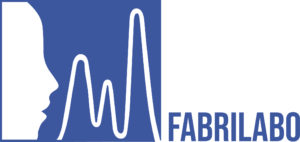Fabrilabo
Trade Union Chamber of Laboratory Equipments and Equipment Manufacturers Manufacturers
Promote the actors of the laboratory world and defend their interests
Fabrilabo, the Trade Union Chamber of Laboratory Equipments and Equipment Manufacturers,
promotes the activities of its members in France and abroad.

Defending and informing laboratory players in the field of standardization
Fabrilabo is very active in the field of standardization and is France’s voice at the national and international level by participating in the development of standards for laboratory apparatus and equipment. It thus defends its members before NF, CEN and ISO committees and alerts them upstream of any project that could have an impact on their products and markets. This work is carried out in partnership with INRS. Every year, it thus ensures an effective presence at numerous French, European and international meetings on the subject of standardization.
Joining the Trade Union Chamber of Laboratory Equipments and Equipment Manufacturers
Joining the union means ensuring a strong network of partners and manufacturers of laboratory apparatus and equipment. It also means benefiting from an entity that defends your interests and promotes your activities. It means being the first to receive information about new products, regulations, etc. It is to allow exchanges between the various companies and colleagues during meetings at our premises in La Défense or elsewhere.
Managing national trade fairs
Through the Salon du Laboratoire, the Trade Union Chamber of Laboratory Equipments and Equipment Manufacturers administers a key event for players in the laboratory world in France and beyond. Our members benefit directly from these shows.

Would you like to find out more?
Copyright 2021 - FABRILABO - Legal Notice
